Want to know more about the Best Schools For Forensic Science In the US and make an informed decision? Here is a good place to start.
Embarking on a journey into the captivating world of forensic science requires a solid educational foundation. With a myriad of schools offering specialized programs, finding the perfect fit can be a daunting task.
To simplify your search, we’ve compiled a comprehensive list of the top 25 institutions across the United States renowned for their exceptional forensic science programs.
Please note that schools are selected based on our criteria (at the end of the article), ranked by the latest acceptance rate.
Table of Contents
#25. Iowa State University
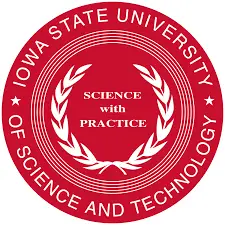
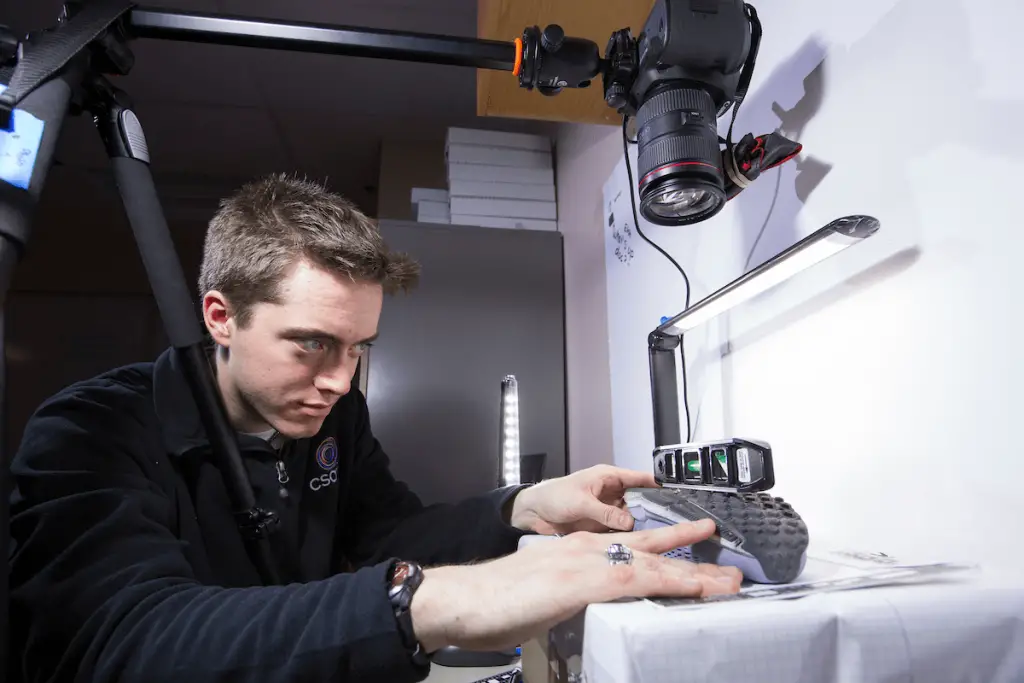
- Acceptance rate: 91%
- Average entry score: 1100-1340 SAT or 21-28 ACT
- Student-to-faculty ratio: 19 to 1
- Estimated cost of attendance (tuition and fees): $21,940-$37,128
- Average earning potential for graduates: $30,200 (College Simply)
Forensic science students at Iowa State University are immersed in a diverse, interdisciplinary program that emphasizes critical thinking and scientific rigor. Students gain hands-on experience through laboratory coursework and internships, fostering the skills necessary to excel in the field.
The program’s strong foundation in biology, chemistry, and criminalistics ensures well-rounded graduates. They are equipped with the knowledge and skills to analyze evidence, collect data and prepare reports. The program is one of only a handful in the country that offers a degree focused on forensic science.
Source: Iowa State University Catalog
#24. University of Mississippi
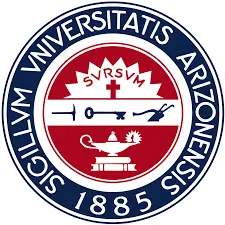
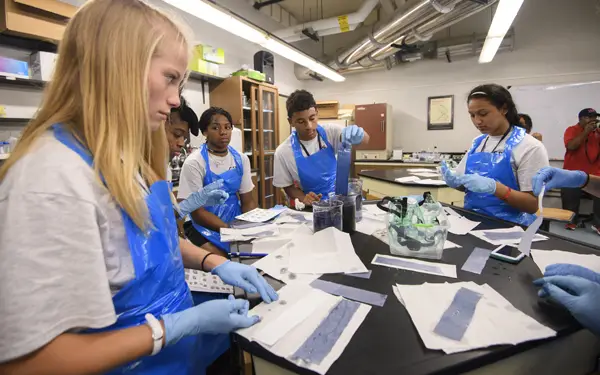
- Acceptance rate: 89%
- Average entry score: 1160-1609 SAT
- Student-to-faculty ratio: 16 to 1
- Estimated cost of attendance (tuition and fees): $27,046-$43,888
- Average earning potential for graduates: $47,100 (College Simply)
At Ole Miss, the forensic science program emphasizes the importance of communication and collaboration. Students develop strong interpersonal skills, which are crucial for working effectively within multidisciplinary forensic teams.
With an emphasis on preparing students for a variety of career paths, the program offers courses in areas such as crime scene investigations and forensic photography. Students can choose from a variety of electives, including classes on topics such as crime scene reconstruction and forensic anthropology.
Source: The University of Mississippi
What’s it like to study at the University of Mississippi?
#23. Arizona State University
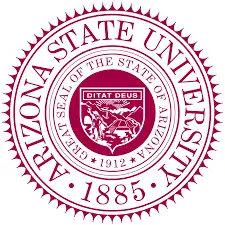
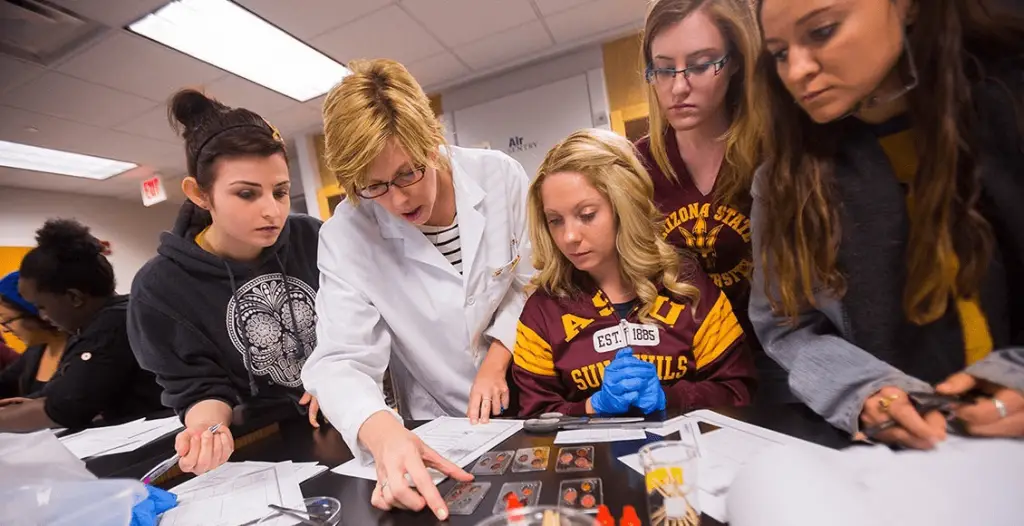
- Acceptance rate: 88%
- Average entry score: 1120-1180 SAT or 22-24 ACT
- Student-to-faculty ratio: 18 to 1
- Estimated cost of attendance (tuition and fees): $32,207
- Average earning potential for graduates: $48,700 (College Simply)
At ASU, forensic science students gain a comprehensive education through a combination of theory, practical application, and research. The program’s strong emphasis on interdisciplinary collaboration ensures students develop expertise in various aspects of forensic science, such as toxicology and forensic anthropology.
Backed by ASU’s world-class scientists and researchers, students receive an exceptional education that prepares them for careers in forensics or other fields.
ASU’s commitment to innovation creates a dynamic learning environment for students. With a focus on research and innovation, students will have the chance to work on real-world projects with faculty members. Students also have access to ASU’s state-of-the-art facilities, including a forensic science laboratory and DNA testing center.
Source: Arizona State University
#22. University of Arizona
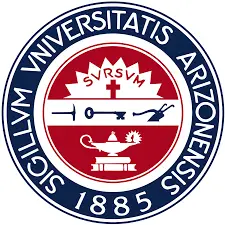
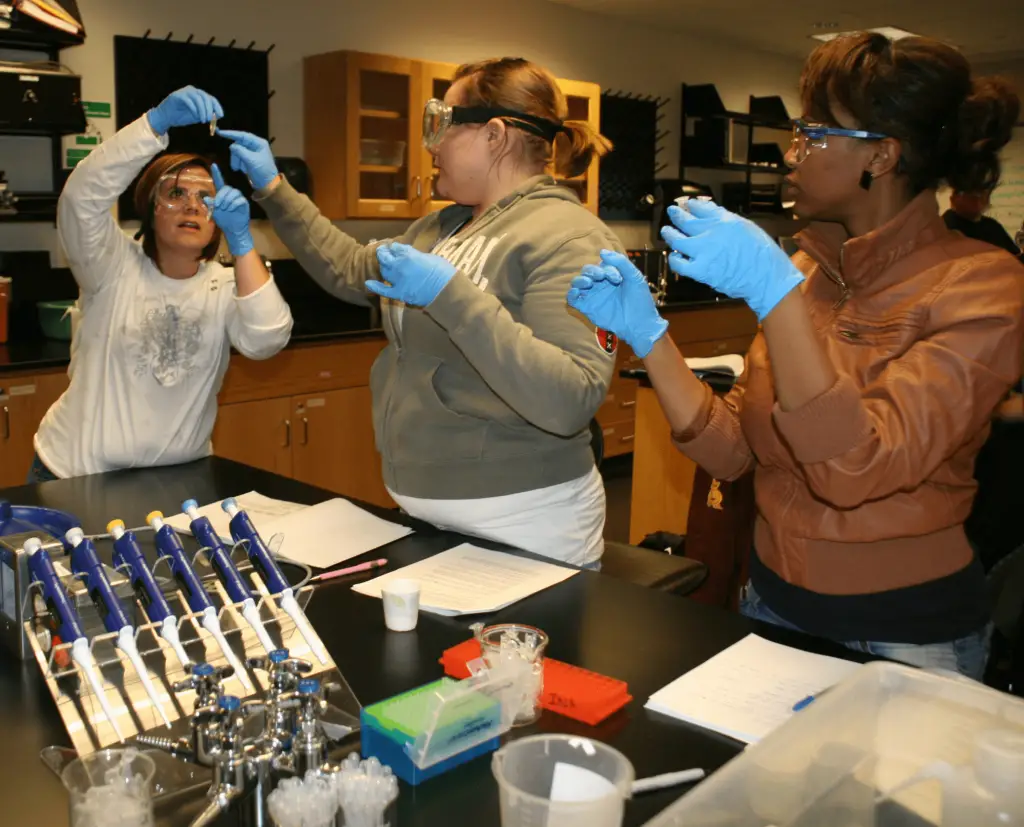
- Acceptance rate: 85%
- Average entry score: 1120-1370 SAT or 21-29 ACT
- Student-to-faculty ratio: 17 to 1
- Estimated cost of attendance (tuition and fees): $30,416-$50,000
- Average earning potential for graduates: $33,300 (College Simply)
At the University of Arizona, the emphasis is on practical application through experiential learning. Students engage in hands-on activities, such as crime scene investigation simulations, which prepare them for the challenges of their future careers.
With an experienced faculty, students are able to develop their skills and learn from some of the top minds in the country. The program also offers students access to state-of-the-art facilities, including a crime scene investigation lab.
Source: University of Arizona
Similar articles like this:
- 25 Best Schools For Insurance Degrees In The US
- Best Schools For International Relations
- 25 Best Digital Marketing Schools In The US
#21. West Virginia University

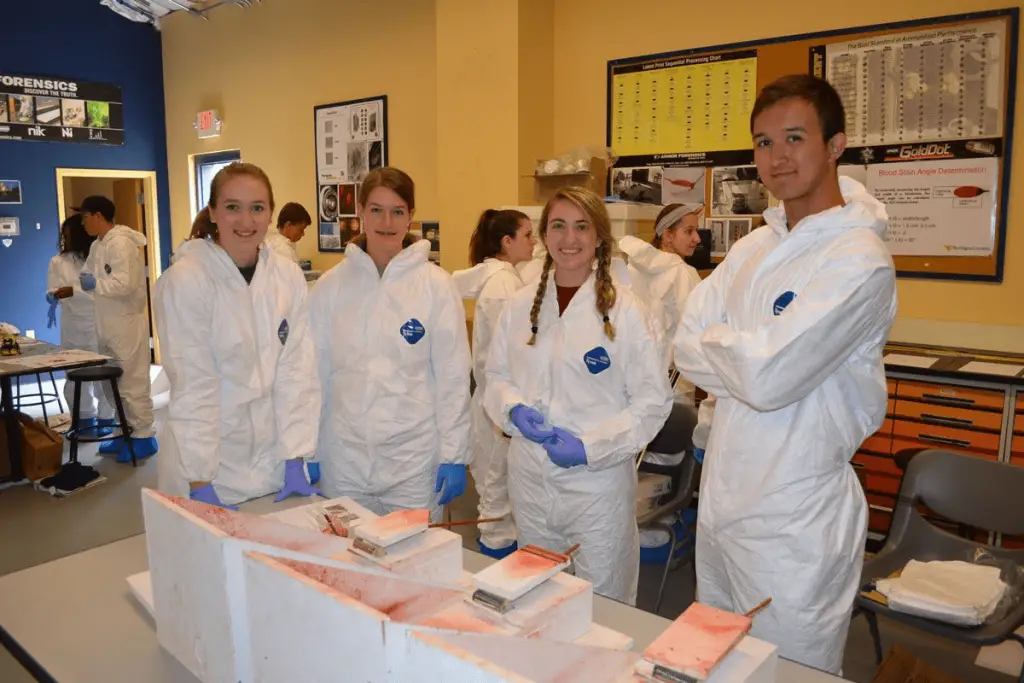
- Acceptance rate: 84%
- Average entry score: 1030-1230 SAT or 21-27 ACT
- Student-to-faculty ratio: 21 to 1
- Estimated cost of attendance (tuition and fees): $102,725
- Average earning potential for graduates: $30,900 (College Simply)
WVU’s forensic science program is rooted in a commitment to excellence, combining rigorous coursework with practical experience.
With a faculty that has been recognized for its research and teaching, WVU offers a challenging curriculum that prepares students for a range of careers in forensic science.
The program’s strong research focus ensures that students have access to cutting-edge technology and techniques as well as opportunities to conduct independent research projects.
Students develop a deep understanding of the scientific principles underlying forensic analysis while actively participating in research projects and internships. Their unique emphasis on ethical considerations ensures graduates are well-rounded professionals.
Source: West Virginia University
#20. University of Maryland Baltimore

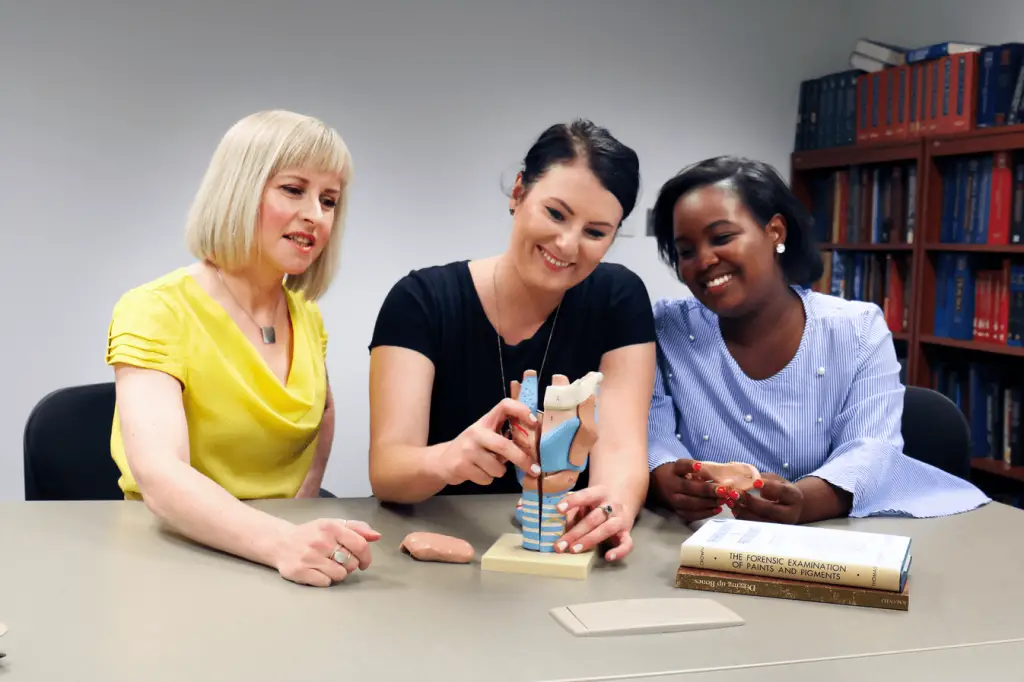
- Acceptance rate: 81%
- Average entry score: 1315 SAT or 28 ACT
- Student-to-faculty ratio: 17 to 1
- Estimated cost of attendance (tuition and fees): $29,646-$45,836
- Average earning potential for graduates: $38,000 (College Simply)
This program focuses on hands-on experiences, providing students with opportunities for real-world applications of their knowledge. The faculty boasts a wealth of experience in both academia and professional practice, ensuring a practical education.
Students will learn how to deal with the challenges of being an expert witness in court, including how to cross-examine an expert witness and how to prepare for trial.
Also, students will have the opportunity to work alongside professionals in the field, such as lawyers and law enforcement officers. They can gain practical experience by assisting with actual cases during their internship periods.
Source: University of Maryland
#19. University of Nebraska Lincoln
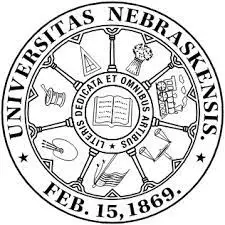
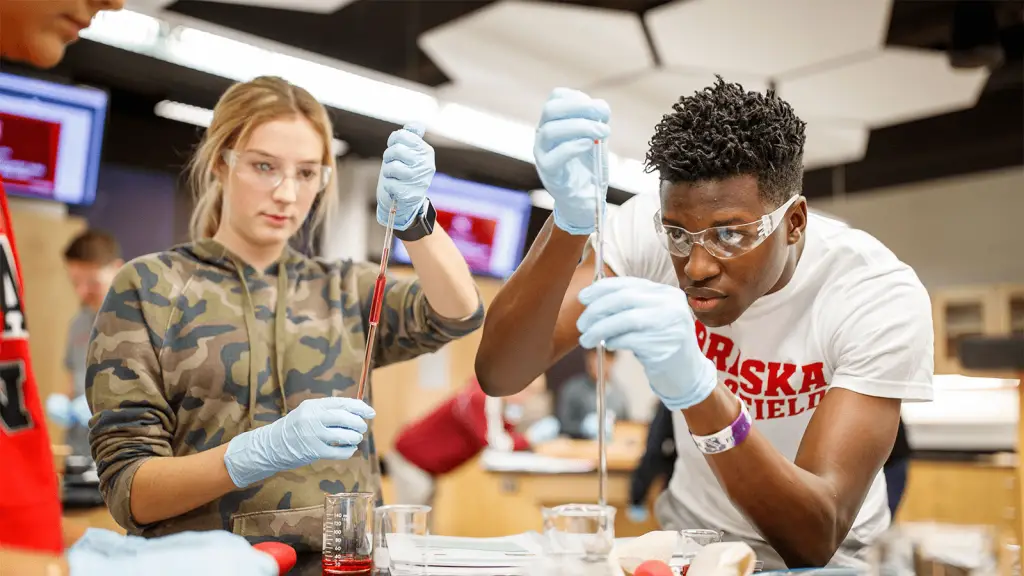
- Acceptance rate: 79%
- Average entry score: 1240 SAT or 24 ACT
- Student-to-faculty ratio: 16 to 1
- Estimated cost of attendance (tuition and fees): $26,252-$43,382
- Average earning potential for graduates: $35,000 (College Simply)
UNL’s forensic science program focuses on producing well-rounded graduates with a strong foundation in science and criminal justice.
The program’s interdisciplinary approach ensures students excel in this dynamic field. Students in UNL’s forensic science program gain hands-on experience through laboratory coursework and internships.
They also learn to communicate effectively, which is an essential skill for anyone working in this field. Their interdisciplinary approach ensures students excel in this dynamic field.
Source: University of Nebraska Lincoln
#18. University of Tennessee Knoxville
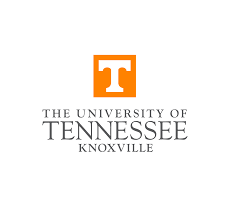
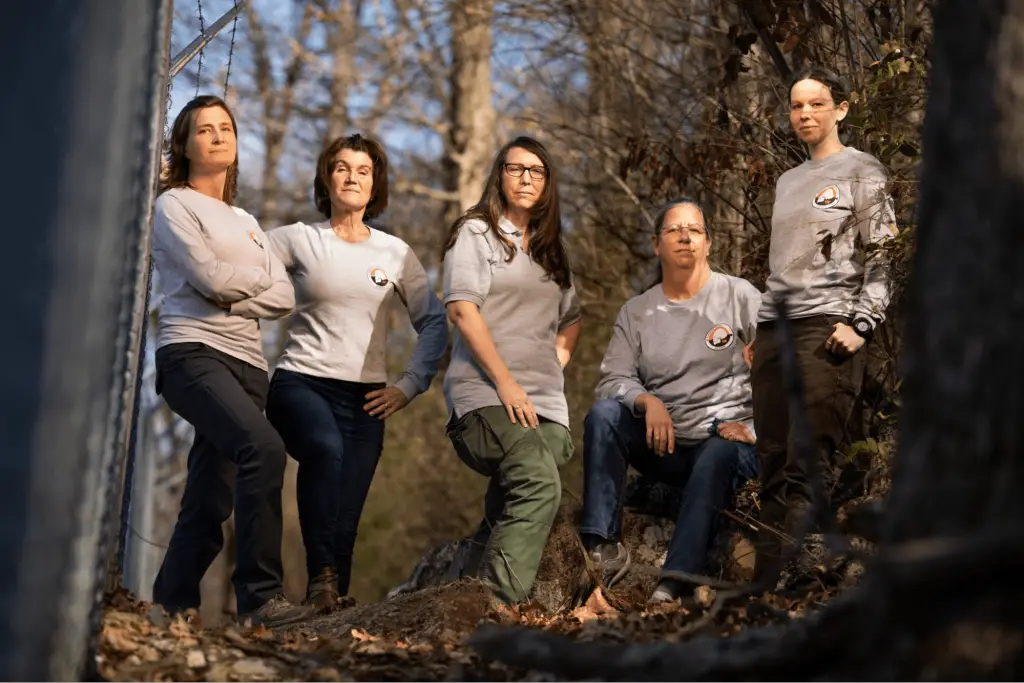
- Acceptance rate: 78%
- Average entry score: 1240 SAT or 27 ACT
- Student-to-faculty ratio: 17 to 1
- Estimated cost of attendance (tuition and fees): $32,658-$50,848
- Average earning potential for graduates: $24,600 (College Simply)
UT Knoxville’s forensic science program combines rigorous academics with practical experience to mold students into skilled professionals. Students gain a comprehensive understanding of forensic principles while participating in research projects and internships.
The program’s focus on collaboration and communication skills ensures that students graduate with the tools to engage in a range of career opportunities. Students have access to state-of-the-art facilities, including a DNA and biotechnology laboratory, electron microscopes and an array of forensic evidence collection equipment.
Source: The University of Tennessee Knoxville
Similar articles like this:
#17. Loyola University Chicago

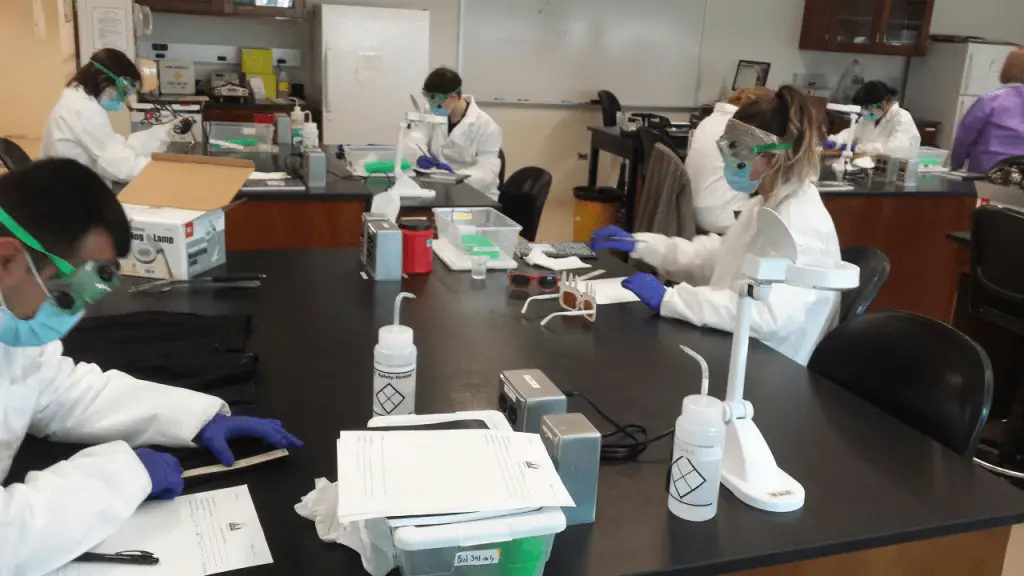
- Acceptance rate: 77%
- Average entry score: 1130-1320 SAT or 27-32 ACT
- Student-to-faculty ratio: 14 to 1
- Estimated cost of attendance (tuition and fees): $68,600
- Average earning potential for graduates: $36,400 (College Simply)
Loyola’s program highlights the importance of ethics and social responsibility, integrating these values into all aspects of the forensic science curriculum. Students are prepared to make a positive impact in their professional and personal lives.
The program includes both lecture and lab-based courses, as well as a forensic science internship. There are also opportunities for students to participate in research projects with real-world applications.
Forensic scientists leave Loyola with a strong foundation of knowledge and skills that can be applied to a number of careers in the field.
Source: Loyola University Chicago
What’s it like to study at Loyola University Chicago?
#16. Michigan State University
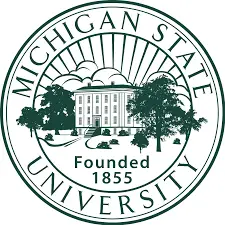
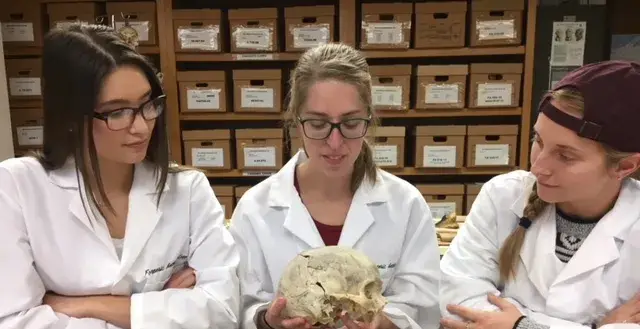
- Acceptance rate: 76%
- Average entry score: 1109-1320 SAT or 23-29 ACT
- Student-to-faculty ratio: 16 to 1
- Estimated cost of attendance (tuition and fees): $29,184-$54,590
- Average earning potential for graduates: $60,400 (College Simply)
MSU’s forensic science program prioritizes research, with students encouraged to participate in faculty-led projects. This research-driven environment promotes critical thinking and innovation, preparing graduates for a variety of careers in the field.
Students learn how to collect and evaluate forensic evidence, including DNA analysis, blood spatter analysis and fingerprint testing. They also learn more about the legal system and prepare for careers as crime scene investigators or forensic analysts.
Source: Michigan State University
#15. Pennsylvania State University

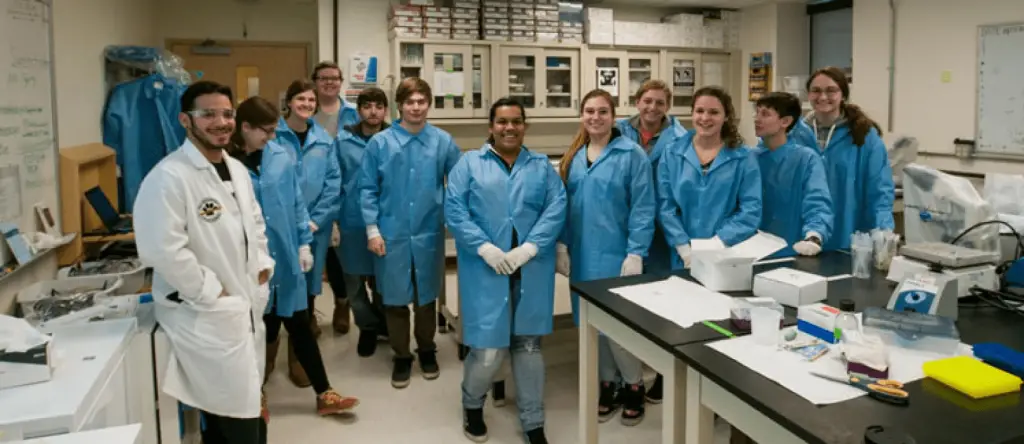
- Acceptance rate: 74%
- Average entry score: 1200-1400 SAT or 26-32 ACT
- Student-to-faculty ratio: 14 to 1
- Estimated cost of attendance (tuition and fees): $36,484-$54,062
- Average earning potential for graduates: $42,800 (College Simply)
Penn State’s forensic science program focuses on the integration of theory and practice. Students engage with real-world case studies and have access to state-of-the-art facilities, ensuring a well-rounded and practical education.
Backed by a strong faculty, Penn State students have access to one of the largest forensic science degree programs in the country. Graduates leave with a solid knowledge base and are well-positioned for careers in law enforcement and private industry.
Source: The Eberly College of Science
What’s it like to study at Pennsylvania State University?
#14. University of Minnesota Twin Cities

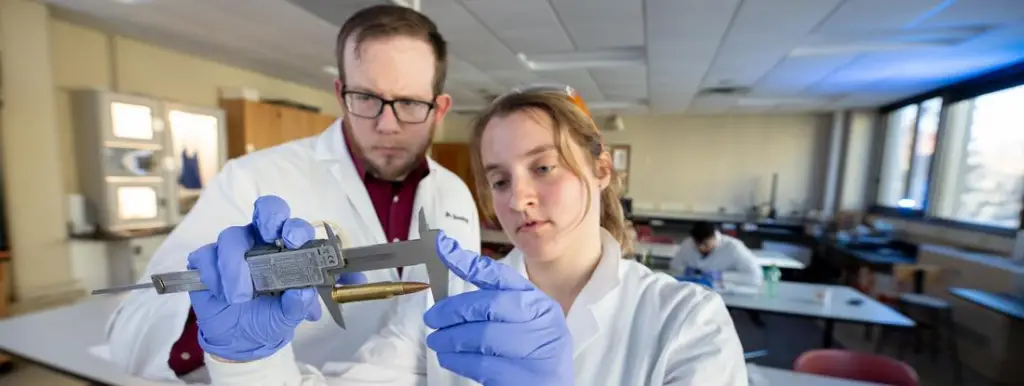
- Acceptance rate: 70%
- Average entry score: 1330-1500 SAT or 27-32 ACT
- Student-to-faculty ratio: 17 to 1
- Estimated cost of attendance (tuition and fees): $23,110-$52,088
- Average earning potential for graduates: $65,000 (College Simply)
At the University of Minnesota, the emphasis is on an interdisciplinary approach. Students benefit from access to cutting-edge technology and collaboration with a diverse range of experts, fostering a well-rounded education in forensic science.
Graduates are equipped with the skills and knowledge to undertake a career in the field of forensic science.
The subfields may include crime scene investigation, ballistics and firearms analysis, biological evidence analysis, biochemistry, DNA profiling, drug chemistry/analysis, fingerprint analysis, footwear impression evidence examination and comparison.
Source: University of Minnesota
Similar articles like this:
- 25 Best Schools For Economics In The US
- 25 Best Schools For Biology In The US
- 25 Best Schools For English Language and Literature in the US
#13. University of Pittsburgh


- Acceptance rate: 66%
- Average entry score: 1250-1470 SAT or 28-33 ACT
- Student-to-faculty ratio: 14 to 1
- Estimated cost of attendance (tuition and fees): $19,760-$36,000
- Average earning potential for graduates: $35,600 (College Simply)
The University of Pittsburgh offers a unique focus on forensic chemistry, ensuring students develop a strong understanding of chemical principles in forensic applications. Students benefit from expert faculty and cutting-edge laboratory facilities.
This way, students can gain a well-rounded understanding of the science behind forensics. Graduates of this program have gone on to pursue careers in law enforcement, forensic science and crime labs.
They also have a variety of options when it comes to employment opportunities, including positions at the FBI or other government agencies. Students can gain additional knowledge through specific courses in areas such as toxicology or biochemistry.
Source: University of Pittsburgh
What’s it like to study at the University of Pittsburgh?
#12. University of California Riverside
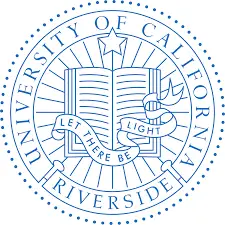

- Acceptance rate: 66%
- Average entry score: 1330 SAT or 30 ACT
- Student-to-faculty ratio: 24 to 1
- Estimated cost of attendance (tuition and fees): $36,574-$66,328
- Average earning potential for graduates: $21,800 (College Simply)
UC Riverside’s program encourages a global outlook, exploring the international aspects of forensic science. Students benefit from study abroad opportunities and a diverse faculty, promoting a well-rounded understanding of the field.
At UC Riverside, students learn from professors who are experts in their fields and have worked with world-renowned scientists. The program offers students the chance to participate in hands-on learning experiences.
In addition, students will be able to develop skills related to criminology, chemistry and biology through coursework covering topics like toxicology.
Source: UCR Extension
#11. Texas A&M University
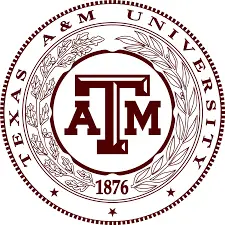

- Acceptance rate: 64%
- Average entry score: 1160-1380 SAT or 25-31 ACT
- Student-to-faculty ratio: 21 to 1
- Estimated cost of attendance (tuition and fees): $26,268-$42,675
- Average earning potential for graduates: $28,400 (College Simply)
Texas A&M emphasizes the importance of networking and professional development. Students have access to numerous resources, including internships and job placement assistance, ensuring a smooth transition from academia to the workplace.
This way, students can gain valuable experience and start their careers as forensic science technicians with a leg up on other candidates. The program also helps students prepare for graduate school, giving them an advantage in the competitive field of forensic science.
Source: Texas A&M University
#10. University of Illinois at Urbana-Champaign

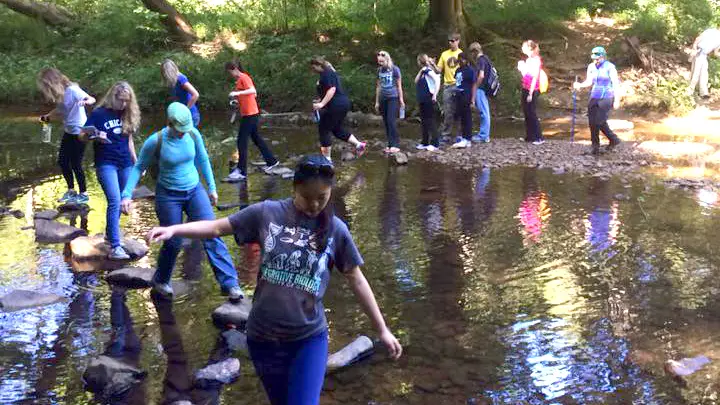
- Acceptance rate: 60%
- Average entry score: 1210-1470 SAT or 27-33 ACT
- Student-to-faculty ratio: 21 to 1
- Estimated cost of attendance (tuition and fees): $33,060-$50,510
- Average earning potential for graduates: $26,400 (College Simply)
At UIUC, forensic science students benefit from a well-rounded curriculum, combining strong theoretical foundations with hands-on learning experiences.
The program’s interdisciplinary nature ensures students gain expertise in chemistry, biology, and criminalistics while participating in cutting-edge research projects and practical internships.
Graduates have a diverse range of career options, including positions in the FBI, state and local police departments, private industry, and crime labs. Their skill set makes them attractive to employers and they can expect to earn high starting salaries.
Source: School of Integrative Biology
Similar articles like this:
#9. Baylor University

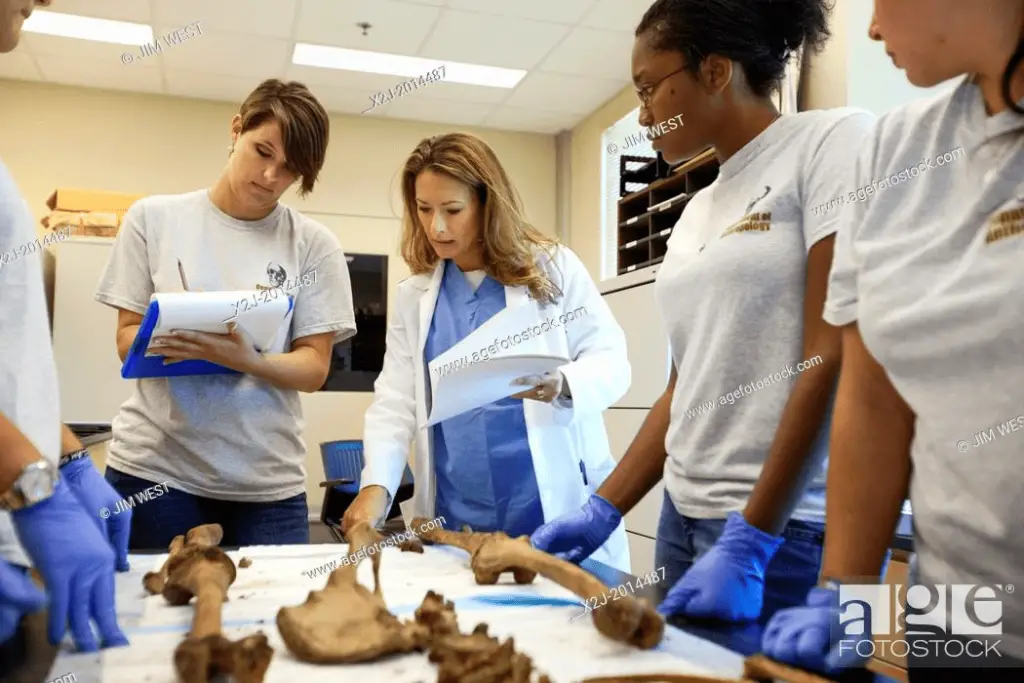
- Acceptance rate: 57%
- Average entry score: 1170-1360 SAT or 26-32 ACT
- Student-to-faculty ratio: 15 to 1
- Estimated cost of attendance (tuition and fees): $69,176
- Average earning potential for graduates: $25,700 (College Simply)
At Baylor, students are exposed to a Christian-based learning environment, which fosters ethical considerations in forensic science. The program offers a strong foundation in both the physical and life sciences, ensuring a comprehensive education.
Forensic science students at Baylor study the human body at a cellular level, which is very important when investigating crimes involving biological evidence. Students are also exposed to practical experience through internships, research projects and field trips.
Source: Baylor University
#8. Ohio State University
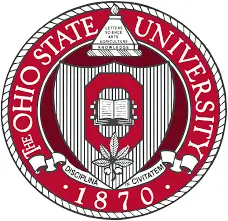
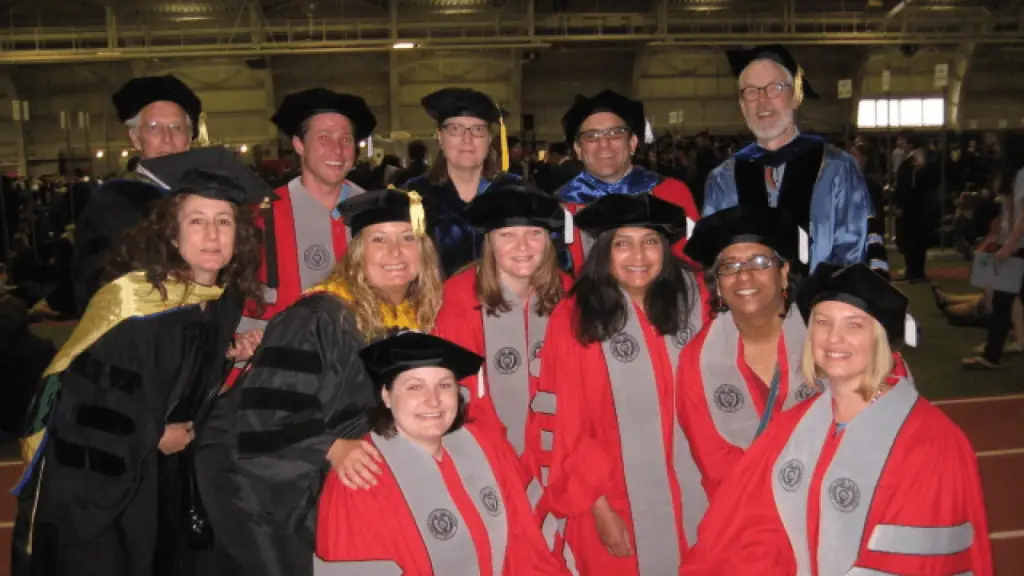
- Acceptance rate: 57%
- Average entry score: 1250-1440 SAT or 26-32 ACT
- Student-to-faculty ratio: 18 to 1
- Estimated cost of attendance (tuition and fees): $29,368-$52,451
- Average earning potential for graduates: $50,400 (College Simply)
OSU’s forensic science program focuses on developing strong analytical and problem-solving skills. Students benefit from state-of-the-art facilities and expert faculty, ensuring they are well-prepared for careers in various forensic disciplines.
As a part of the Program in Biological Sciences, students benefit from cross-disciplinary research opportunities and access to an extensive network of scientists.
The program also offers a variety of career opportunities for graduates. Students may go on to pursue graduate degrees or work in a variety of positions, including research and development, crime scene investigation, toxicology and more.
Source: The Ohio State University
#7. University of Washington Seattle
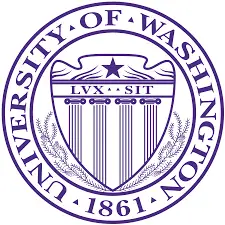
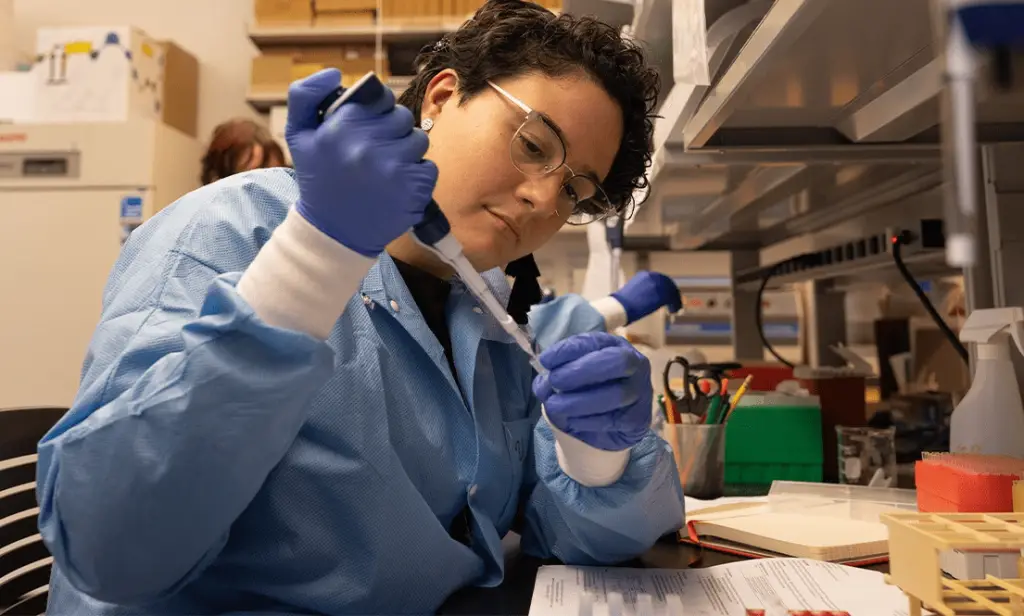
- Acceptance rate: 53%
- Average entry score: 1220-1470 SAT or 29-34 ACT
- Student-to-faculty ratio: 9 to 1
- Estimated cost of attendance (tuition and fees): $30,640-$58,470
- Average earning potential for graduates: $62,500 (College Simply)
UW Seattle’s forensic science program merges rigorous coursework with hands-on experience, providing students with a well-rounded education. Students learn from accomplished faculty members while participating in cutting-edge research projects and internships.
The program includes a selection of upper-level courses in forensic science, including ballistics and crime scene analysis. Students can also take courses in related fields, such as biochemistry and DNA technology.
The program culminates with a capstone project that allows students to apply their forensic science knowledge and skills in real-world scenarios.
The interdisciplinary nature of the program ensures students graduate with a comprehensive understanding of forensic science principles.
Source: University of Washington
#6. University of California Davis
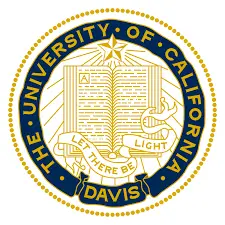

- Acceptance rate: 46%
- Average entry score: 1160-1400 SAT
- Student-to-faculty ratio: 21 to 1
- Estimated cost of attendance (tuition and fees): $37,122-$66,876
- Average earning potential for graduates: $30,200 (College Simply)
UC Davis forensic science students are molded through a multidisciplinary program combining chemistry, biology, and criminalistics.
The curriculum includes a combination of general education requirements and upper division electives that provide students with an understanding of the scientific principles that are used in forensic science.
Students learn from renowned faculty members while engaging in research projects and internships that provide real-world experience. The program emphasizes the importance of critical thinking and problem-solving skills in forensic investigations.
Employers seek graduates because they are prepared to enter a dynamic field that is constantly evolving and expanding.
Source: UC Davis
Similar articles like this:
#5. North Carolina State University at Raleigh


- Acceptance rate: 46%
- Average entry score: 1260-1420 SAT or 24-31 ACT
- Student-to-faculty ratio: 15 to 1
- Estimated cost of attendance (tuition and fees): $24,986-$45,771
- Average earning potential for graduates: $37,200 (College Simply)
NCSU’s forensic science program emphasizes both technical skills and critical thinking. Students are equipped with a comprehensive understanding of forensic techniques.
Through their coursework, internship experiences, and research opportunities in the field of forensic science, students develop practical skills that prepare them for real-world jobs.
The curriculum is designed to provide graduates with a broad range of knowledge in these areas: crime scene investigation; DNA analysis; trace evidence examination; digital forensics; forensic chemistry and toxicology.
With state-of-the-art facilities and strong collaborations with local law enforcement agencies, NCSU students are prepared for successful careers in forensic science.
Source: NC State University
#4. University of California Irvine
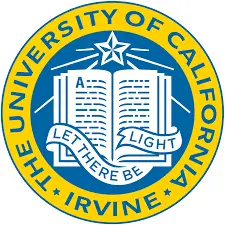

- Acceptance rate: 29%
- Average entry score: 1230-1430 SAT or 26-33 ACT
- Student-to-faculty ratio: 18 to 1
- Estimated cost of attendance (tuition and fees): $34,161-$63,915
- Average earning potential for graduates: $62,300 (College Simply)
UCI’s forensic psychology program emphasizes a balance of theory and practice. Students benefit from state-of-the-art facilities, engaging in collaborative research projects and hands-on learning opportunities.
With a strong focus on analytical techniques and cutting-edge technology, UCI graduates are well-prepared to contribute to the evolving field of forensic science.
The program is designed for students who want to pursue careers in law enforcement, crime scene investigation or related fields. It is ideal for those who are looking to combine their passion for science with their desire to serve the community. UCI offers a forensic science degree program and a certificate program.
Source: UC Irvine
#3. Washington University in St. Louis

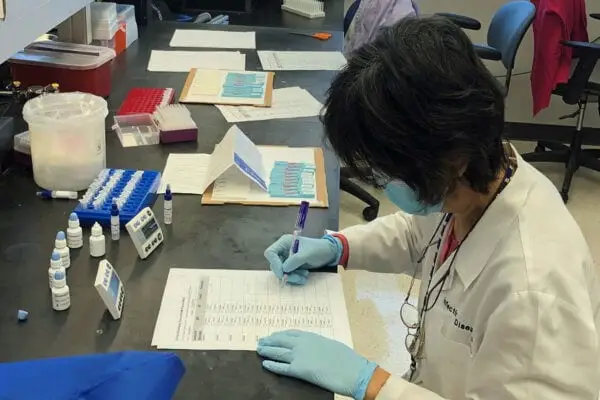
- Acceptance rate: 16%
- Average entry score: 1490-1570 SAT or 33-35 ACT
- Student-to-faculty ratio: 7 to 1
- Estimated cost of attendance (tuition and fees): $79,060
- Average earning potential for graduates: $56,700 (College Simply)
WashU’s forensic science program prioritizes innovation, encouraging students to explore new technologies and techniques. The program’s strong emphasis on research ensures graduates are at the forefront of the field.
Forensic science students at WashU have access to a wide range of facilities. The program uses cutting-edge technology, including DNA analysis equipment and a digital microscope that allows students to view cell structures in three dimensions.
WashU’s forensic science program has an extensive internship network, allowing students to gain hands-on experience with local law enforcement agencies and private companies. Graduates leave Washington University with strong technical skills as well as a broad knowledge base that can be applied to many types of jobs in the field.
Source: Washington University in St. Louis
What’s it like to study at Washington University in St Louis?
#2. Northwestern University
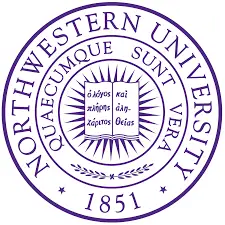

- Acceptance rate: 7%
- Average entry score: 1440-1550 SAT or 33-35 ACT
- Student-to-faculty ratio: 6 to 1
- Estimated cost of attendance (tuition and fees): $62,391
- Average earning potential for graduates: $59,600 (College Simply)
Northwestern’s forensic science program promotes interdisciplinary collaboration through partnerships with other departments, exposing students to a wide range of perspectives. This approach fosters critical thinking and creativity, essential skills in the field.
Students take advantage of the personalized teaching style, which allows them to develop their own areas of expertise. This program offers students a variety of opportunities, including internships and fieldwork. Students also have access to state-of-the-art facilities, where they can learn about DNA analysis and forensic biology.
Source: Northwestern University
#1. Stanford University

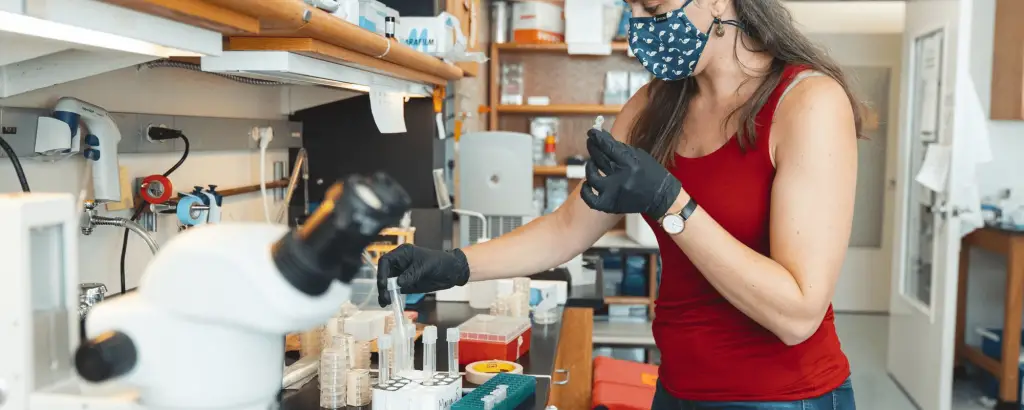
- Acceptance rate: 4%
- Average entry score: 1470-1570 SAT or 34-35 ACT
- Student-to-faculty ratio: 5 to 1
- Estimated cost of attendance (tuition and fees): $78,898
- Average earning potential for graduates: $35,900 (College Simply)
Stanford’s forensic science students benefit from the university’s renowned research resources and exceptional faculty. The program’s interdisciplinary approach combines science, technology, and law, ensuring students develop a comprehensive understanding of forensic science.
The program combines science, technology, and law to give students a comprehensive understanding of forensic science. Students also benefit from the university’s research resources, exceptional faculty, and proximity to Silicon Valley.
The emphasis on critical thinking and problem-solving skills prepares graduates for successful careers in the field. Graduates of the program will be prepared to enter the workforce with a strong understanding of how to apply scientific principles in law enforcement and criminal investigations.
The curriculum encompasses areas such as biology, chemistry, criminology and forensic science, genetics, medicine and public health.
Source: Stanford University
Conclusion
Choosing the right school for forensic science is crucial for your future success. These top 25 institutions offer exceptional programs and resources to help you excel in this fascinating field.
As you weigh your options, consider factors such as location, facilities, and opportunities for hands-on experience. Ultimately, trust your instincts and select a program that aligns with your career goals and passion for uncovering the truth through scientific investigation.
Selection Criteria
Here is a list of the factors we considered when selecting the best forensic science colleges:
Please note that the order in this list might vary by ranking criteria and sources.
- Reputation and ranking of the school: We looked for schools that have a strong reputation and high ranking in forensic science.
- Faculty expertise, qualifications, and specialization: We researched the faculty members and their areas of expertise, and qualifications to ensure that the school has professors with relevant expertise and specialization in the areas of forensic science that are of interest.
- Curriculum and resources: We evaluated the curriculum to ensure it aligns with students’ interests and career goals and considered the quality of the school’s facilities and resources, such as labs, equipment, and libraries.
- Opportunities for hands-on learning and research: We looked for schools that provide opportunities for hands-on experience through internships, co-op programs, or fieldwork.
- Student support services and alumni network: We considered the availability of support services and the strength of the alumni network in providing mentorship, internships, and job opportunities after graduation.
- Extracurricular activities and diversity: We evaluated the availability of extracurricular activities and clubs that align with students’ interests and considered the school’s diversity and inclusivity.
- Networking and post-graduation support: We researched the school’s network of alumni and their post-graduation support for forensic science students, and also considered if the schools have a strong network of forensic science professionals and researchers.
Frequently Asked Questions
Q1. What sets the top forensic science schools apart from other institutions in the US?
The best schools for forensic science typically offer a comprehensive curriculum, state-of-the-art facilities, renowned faculty, and strong connections with law enforcement agencies and forensic labs.
These schools also prioritize hands-on experiences, internship opportunities, and job placement support for their students.
Q2. Are there any specialized areas of study within forensic science programs at top schools?
Yes, many top forensic science schools offer specialized concentrations or tracks within their programs. These may include forensic biology, forensic chemistry, digital forensics, forensic toxicology, or forensic anthropology, allowing students to tailor their education to their specific interests and career goals.
Q3. How do top forensic science schools in the US support students in finding internships and job opportunities?
Top schools often have dedicated career services offices that provide assistance in finding internships, job placements, and networking events.
In addition, these schools may have strong partnerships with local, state, or federal agencies and forensic labs, which can lead to internship or job opportunities for their students.
Q4. Do top schools for forensic science offer online or hybrid programs?
While most top forensic science programs are on-campus, some schools do offer online or hybrid options. These programs may be ideal for students who require flexibility due to work or personal commitments but still want to benefit from a high-quality education in forensic science.
Q5. What types of hands-on experiences can I expect at a top forensic science school in the US?
At top schools, students often have access to state-of-the-art laboratories and equipment, as well as opportunities to participate in research projects or work with faculty on real-world cases.
Additionally, some schools may have partnerships with local forensic labs or crime scene units, providing students with practical, hands-on training in the field.
References
[1] Official Websites
[2] Salary Data from Glassdoor, College Factual, Grad Reports, College Simply, and Zippia, among others
[3] Ranking references including news media such as Best Universities for Forensic Science in the World.


